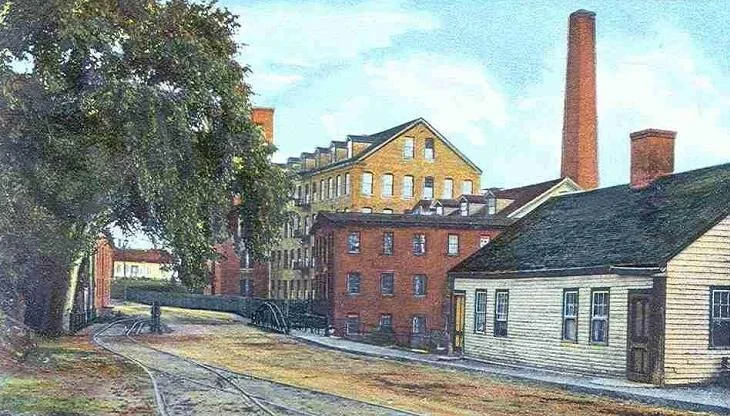
Maple sugaring means…
Boiling the maple sap in March to make syrup
“Maple sugaring exemplifies the classic New England values of connectness to land and community. Yankee ingenuity, observation of the natural world, heritage pride, entrepreneurship, homespun hospitality, make-do, and can-do, and simplicity.’’
— David K. Leff in Maple Sugaring: Keeping It Real in New England.
Mr. Leff (born 1955), of the Collinsville village in Canton, Conn., is a poet, essayist, lecturer and former deputy commissioner of the Connecticut Department of Environmental Protection.
Some of the Collins Company factory buildings in Collinsville on the Farmington River, viewed from Connecticut Route 179. The company, which closed in 1966, was once the world’s biggest maker of axes. It made other cutting tools, too. The river was the original source of the factory’s power.
Don't depend on one company; mill village in verse
Cleanup activity at one of the General Electric Pittsfield plant Superfund sites on the Housatonic River, which the company heavily polluted in its heyday.
One thing that any community —in New England or elsewhere — should avoid is over-reliance on one or two big companies. Pittsfield, Mass., found that out when General Electric, which once employed 14,000 people at its facilities in that little city, closed most of its operations there, leaving economic devastation. Now, Pittsfield (the capital of the Berkshires) seeks a diverse collection of much smaller firms and is having modest success in turning around the city.
Jonathan Butler, the president and CEO of 1Berkshire, a business development group, told New England Public Radio:
“If we were to have another employer with 10,000 or 15,000 jobs come in, {to Pittsfield} that would scare me. I think that would scare those of us [who] work in economic development.”
I have strong memories of covering the 1970 elections in Pittsfield for the old Boston Herald Traveler. It then still had a thriving downtown, though you could sense slippage.
To read more, please hit this link.
Assawaga Mill, Dayville, Conn., in 1909
Factory Town in Verse
Old New England mills (many of them beautiful, and built for the ages) and the towns that grew around them have become the subjects of a curious form of romance in recent years. So now we have poet, novelist, essayist, environmentalist and former Connecticut deputy environmental commissioner David K. Leff out with a verse novel, The Breach: Voices Haunting a New England Mill Town, which studies the decline of such a community facing economic and an environmental crises.
To hear Mr. Leff talk about his book, and read from it, please hit this link.




